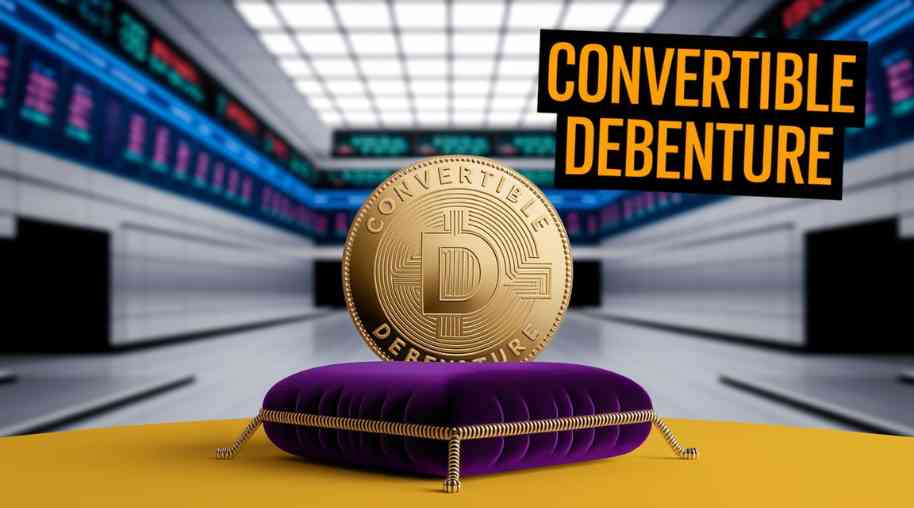PCD Full Form-Partially Convertible Debenture
by Shashi Gaherwar
0 1011
Understanding Partially Convertible Debentures: Features, Benefits, and Risks
In the world of corporate finance, companies use various financial instruments to raise capital. One such instrument is the Partially Convertible Debenture (PCD), which combines the characteristics of both debt and equity. This hybrid security is widely used by corporations to attract investors by offering a mix of fixed income and potential equity appreciation.

What is a Partially Convertible Debenture (PCD)?
A Partially Convertible Debenture (PCD) is a type of debt instrument issued by companies where a portion of the debenture is convertible into equity shares after a specified period, while the remaining portion continues as a fixed-income security until maturity. The conversion ratio and terms are predetermined at the time of issuance.
Unlike Fully Convertible Debentures (FCDs), which are entirely converted into equity, and Non-Convertible Debentures (NCDs), which remain as pure debt instruments, PCDs offer a balanced approach, making them attractive to both risk-averse and growth-oriented investors.
Features of Partially Convertible Debentures
1. Hybrid Nature: PCDs provide investors with the benefits of both debt and equity instruments.
2. Fixed Interest Rate: Investors receive a predetermined interest rate on the non-convertible portion until maturity.
3. Partial Conversion to Equity: A portion of the debenture is converted into equity shares at a fixed ratio and price.
4. Predetermined Maturity Period: The non-convertible portion is repaid to investors upon maturity.
5. Risk Diversification: The combination of fixed returns and equity participation reduces investment risk.
Benefits of Investing in Partially Convertible Debentures
1. Steady Income with Growth Potential
Investors benefit from fixed interest payments on the non-convertible portion while gaining potential returns from equity price appreciation after conversion.
2. Lower Risk Compared to Pure Equity Investments
Since a part of the investment remains as a debt instrument, PCDs offer lower risk than fully convertible debentures or direct equity investments.
3. Attractive to Companies for Fundraising
Companies find PCDs an effective way to raise capital while reducing interest expenses in the long run due to the equity conversion option.
4. Diversification for Investors
PCDs allow investors to diversify their portfolio by combining fixed-income securities with the potential growth of equity.
5. Tax Benefits
In some cases, investors may enjoy tax benefits on interest income and capital gains from the converted equity shares.
Risks and Challenges of Partially Convertible Debentures
1. Market Volatility
The value of the convertible portion depends on stock market performance, which can be unpredictable.
2. Dilution of Equity
When companies convert debentures into shares, it increases the number of outstanding shares, potentially diluting existing shareholders’ ownership.
3. Interest Rate Risk
If market interest rates rise, the fixed return on PCDs may become less attractive compared to new investment opportunities.
4. Credit Risk
There is always a possibility that the issuing company may default on interest payments or principal repayment.
Who Should Invest in Partially Convertible Debentures?
• Conservative Investors: Those who seek fixed income with limited exposure to equity.
• Moderate Risk-Takers: Investors who want some equity growth potential without fully investing in stocks.
• Institutional Investors: Companies and institutions looking for diversified investment options.
• Corporate Investors: Businesses that prefer structured financial instruments for long-term funding.
Partially Convertible Debentures (PCDs) offer a unique investment opportunity by blending the features of both debt and equity instruments. They provide a steady income stream while allowing for potential capital appreciation, making them an attractive option for investors looking for a balanced approach. However, like any financial instrument, they come with risks, including market volatility and interest rate fluctuations. By carefully analyzing the terms, conversion ratio, and the issuing company’s financial health, investors can make informed decisions and optimize their investment portfolio.

Share:








Comments
Waiting for your comments